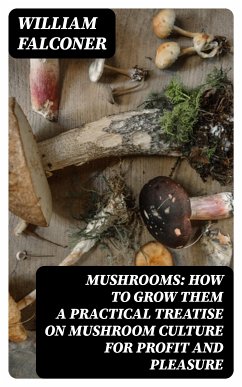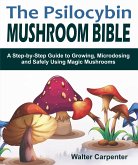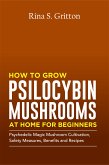William Falconer's treatise, 'Mushrooms: how to grow them a practical treatise on mushroom culture for profit and pleasure,' is a seminal work in the field of mycology and horticulture, deftly combining practical knowledge with a passion for fungi. Written with the intent of providing a comprehensive guide, the book spans the spectrum of mushroom cultivation, from the basics of spawning to the intricacies of harvest. Falconer's literary style is rooted in practicality but peppered with empirical observations that paint a rich and informative canvas for readers. It functions within the broader literary context of agricultural manuals and nature studies, aimed at educating the amateur enthusiast and professional cultivator alike. This special edition by DigiCat Publishing breathes new life into Falconer's legacy, maintaining fidelity to the original text while embracing modern accessibility through both print and ebook formats. William Falconer was not just an author but a pioneering expert in the cultivation of mushrooms, whose life and experiences are reflected in the pages of this treatise. His dedication to the subject is evident in the meticulous attention to detail and the clarity with which he imparts his wisdom. The prompt to write this book likely stemmed from Falconer's desire to elucidate a subject that, at the time, was fraught with mystery and misinformation. His authoritative voice provided a much-needed resource for those seeking to harness the commercial potential of mushroom growing or simply to indulge in the pleasure of cultivating their own fungi. For enthusiasts of gardening, professionals in agriculture, and mycophiles, Falconer's 'Mushrooms: how to grow them' is a must-have addition to their literary collection. The treatise stands as both a historical artifact and a practical guide, bridging the gap between passion and profit in the realm of mushroom culture. DigiCat Publishing's edition ensures that Falconer's work continues to inspire and inform future generations with the same dedication to excellence that he championed in his lifetime.
Dieser Download kann aus rechtlichen Gründen nur mit Rechnungsadresse in A, B, BG, CY, CZ, D, DK, EW, E, FIN, F, GR, H, IRL, I, LT, L, LR, M, NL, PL, P, R, S, SLO, SK ausgeliefert werden.









